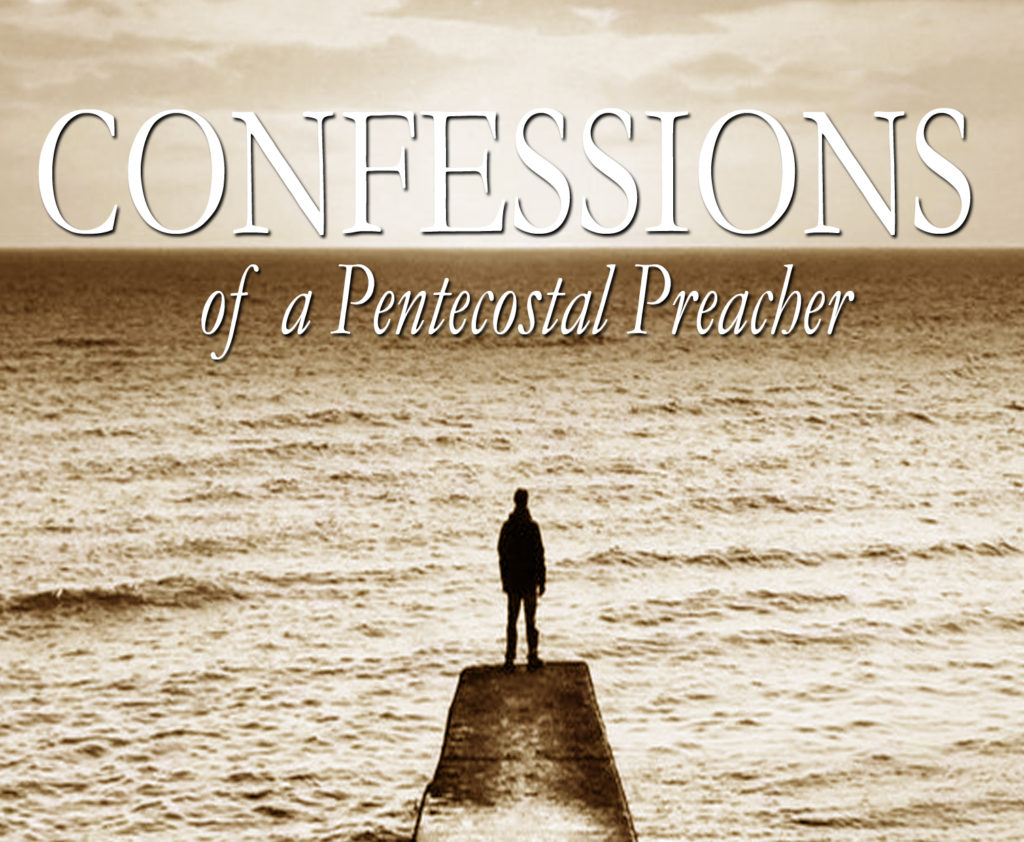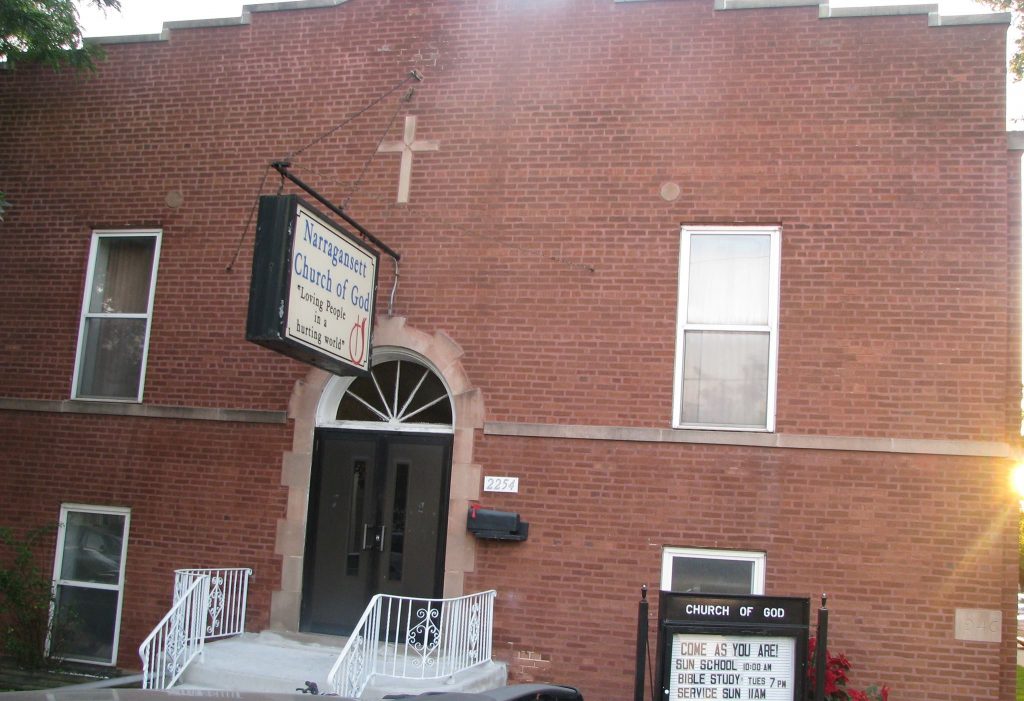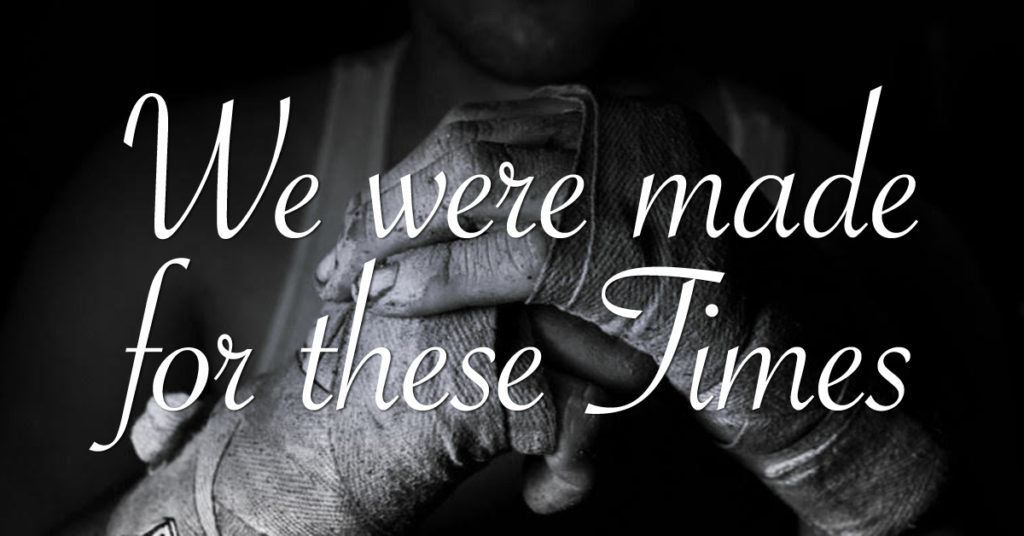I was baptized…
As we are approaching 30 years in ministry in 2020, the centennial of Bulgarian Pentecostalism, a quarter of a century since we started the Bulgarian church in Chicago and several other important anniversaries, I have felt compelled to finally complete several books that have been long in the making. As I was digging threw some old documents just recently, I came to my first recorded account of being baptized with the Holy Spirit. Being a fifth generation Pentecostal, this experience is important too me and I have written and spoken about it in many occasions. However, this first account I have recoded many over 20 plus years ago is a personal recollection I would like to share today:
That night my cousin started to talk to me after church asking me if I was saved. I obviously was not, so she told me that God could change my life in one prayer. I refused to pray, but she kept on talking and I realized if I did not pray the prayer then, I never would. When I repeated the prayer after her, she asked me if I felt anything. My answer was, “No.” She assured me I would feel something soon. After this, everyone went home. As soon as I got home I took my pack of cigarettes and I threw them out the window. Indeed that night, something happened. For the first time in my life I felt free. It was August 11, 1990.
The next day was Sunday, and I took my first communion in church. On Monday I started fasting for the baptism of the Holy Spirit. I talked with my cousin that night telling her about my decision to fast three days for the baptism. She said that I did not need to fast because the Holy Spirit was already given to the believers and the only thing I needed to do was to receive Him.
On Thursday night (August 16, 1990) we had a healing meeting during the first Pentecostal conference after the fall of Communism. After the sermon, the preacher said we were going to do three things: first – we would all prayer together, second – he would pray for us and third – he would tell us to do what we have not been able to do and we would do it. And so we did. We all prayed. Then he prayed. I remember praying for the baptism. When he said, “Do what you were not able to do before” the Holy Spirit filled me, and I started to speaking in tongues and have not stopped since then.
A month later I returned to school. Everything was different then. I witnessed to all my school-mates the first night I was there, telling them about the change in my life. Only one decided to go to church with me. He got saved that following Friday. It was on the night when I preached my first sermon.
I had been involved in the church for a few months, when my pastor asked me to start working with the youth group. I started with twelve people, many dreams, and no experience. The results were likewise. Our youth meetings on Tuesday night were filled with prayer and praise, rather than long sermons. We would often get together for prayer, and pray all night long. Our expectations were great. I remember praying that everyone I looked at would get saved.
A few months later, in the spring of 1991, when the Lord blessed us abundantly, people from our school started coming to the little building at the end of the town, a former communist club, where we had our meetings. Many were saved during our meetings. A number of skinheads, drug addicts, people that everyone knew in school, came to our meetings, were delivered and joined the youth group. Everyone in the group received the baptism with the Holy Spirit. I distantly remember one night when 26 people were filled during and spoke in tongues the prayer. The youth group grew quickly with the hundreds in attendance. For all of us that had prayed for revival, this was a time of refreshing and encouragement…
1992 in the city of Pravetz, we experienced one of the greatest student revivals
1993 I graduated from the school there
1994 I came to the States to start college
1995 The Bulgarian church in Chicago started
1996 Bibliata.com was started
Now 30 years later, the time to tell the story has finally come…
This book should have been published seven years ago in 2013. Its original subtitle was going to read “7 Years in Bulgaria.” Instead, it took seven years to finish it with all documents, research archives and new cases. Now, it is finally here and it finally reads like a story – not just choppy interviews, deposition documented testimonies or court records, but a story of struggle, strength and solitude. A story of life and a story of us.
1995-96 The establishing of the first Bulgarian Church of God in Chicago and its first split
2000-01 The contracted building of the ministry center for the Central Church of God in Sofia
2002-03 The church split in Southaven and what followed next
2005-06 The post-communist split of the Bulgarian Church of God and consecutive sub-denominations
2010-13 The social media network that cost us millions (of souls)
2016 The vote that forced to kill a church
2019-20 The sale of the ministry center for the Central Church of God in Bulgaria
READ: CONFESSIONS of a Pentecostal Preacher
I was saved…
During the month of September, our ministry is celebrating 30 years in the ministry. I was saved in my hometown of Yambol Bulgaria on August 9, 1990 and baptized with the Holy Spirit seven days later. In two weeks time God called me to preach and I preached my first sermon one September Friday at the Church of God in the small mountain town of Pravetz, Bulgaria. Fourteen were present at the meeting. The Bulgarian Church of God was still underground. Little I knew that only a few months later, the youth group of the church would count over 100 strong and growing, the Berlin Wall would have had fallen and revival would’ve been on the way. That night in Pravetz Bulgaria I just preached a sermon from the Word. That same Word, which God still claims cannot return void. For Revival must go on …
Our story has a humble beginning working with small Pentecostal-holiness groups in the Bulgarian mountains and growing the Pravetz Church of God youth group to over 300 members in a city of 5,000. And thus our ministry moved forward: from the storefront churches of Bulgaria to establishing the Bulgarian congregation of Chicago; from the backwoods Bulgarian villages to postgraduate level research; from the old red back hymnal to the latest technological invention; from hitchhiking to the charter flights and using any transportation necessary to get to the Sunday morning service and minister. We have done whatever needed to be done for the ministry to go on in Bulgaria and abroad. But we never forgot where we came from and we have faithfully kept on returning to minister to our humble beginnings…
At age 30 a ministry is not an old veteran, but just starting in its prime. We are both convinced and committed toward a new level of ministry in 2020 in a new spiritual realm. With this vision in mind, we have present the Bulgarian Church of God a dynamic strategy for the next five years of its development and ministry. We invite you to partner with us in payer and fasting for this endeavor.
This book should have been published seven years ago in 2013. Its original subtitle was going to read “7 Years in Bulgaria.” Instead, it took seven years to finish it with all documents, research archives and new cases. Now, it is finally here and it finally reads like a story – not just choppy interviews, deposition documented testimonies or court records, but a story of struggle, strength and solitude. A story of life and a story of us.
1995-96 The establishing of the first Bulgarian Church of God in Chicago and its first split
2000-01 The contracted building of the ministry center for the Central Church of God in Sofia
2002-03 The church split in Southaven and what followed next
2005-06 The post-communist split of the Bulgarian Church of God and consecutive sub-denominations
2010-13 The social media network that cost us millions (of souls)
2016 The vote that forced to kill a church
2019-20 The sale of the ministry center for the Central Church of God in Bulgaria
READ: CONFESSIONS of a Pentecostal Preacher
CONFESSIONS of a Pentecostal Preacher (9.1.20.)
This book should have been published seven years ago in 2013. Its original subtitle was going to read “7 Years in Bulgaria.” Instead, it took seven years to finish it with all documents, research archives and new cases. Now, it is finally here and it finally reads like a story – not just choppy interviews, deposition documented testimonies or court records, but a story of struggle, strength and solitude. A story of life and a story of us.
1995-96 The establishing of the first Bulgarian Church of God in Chicago and its first split
2000-01 The contracted building of the ministry center for the Central Church of God in Sofia
2002-03 The church split in Southaven and what followed next
2005-06 The post-communist split of the Bulgarian Church of God and consecutive sub-denominations
2010-13 The social media network that cost us millions (of souls)
2016 The vote that forced to kill a church
2019-20 The sale of the ministry center for the Central Church of God in Bulgaria
READ: CONFESSIONS of a Pentecostal Preacher
A quarter of a century ago in Chicago
I left Chicago on this day 25 years ago (July 30, 1995). The Bulgarian church that day held service at 1 PM with 64 Bulgarians and many other internationals in attendance. Bulgarian students from the neighboring Indiana and Wisconsin attended as well. There was even a Bulgarian family from Alaska.
It was a Sunday. I left Chicago to preach in Beloit, WI that night and then left for Washington, D.C. the following morning. While driving north with quite the speed my Carolina blue Grand National began filling with white smoke. At first, I thought the air conditioner was on its last leg in the hot Chicago summer of 1995, but the air remained strong and cold. The cloud proceeded and it was so sensible that I had to slow down and basically stop on the side of the road. In my 30 years of ministry, I have only seen this one more time – in 2011 when the Glory of God descended over a youth camp we were preaching in the Bulgarian mountains. I did finally preach in Beloit and made it to D.C. the next day, but the vision of the cloud remained with me for the next 25 years.
Meanwhile, the word of mouth had spread and the Bulgarian church in Chicago was growing among the Bulgarian diaspora. On October 7, 1995, I was able to visit the church in Chicago again and present it to the National Overseer of the Bulgarian Church of God, Pastor Pavel Ignatov who visited the Bulgarian congregation in Chicago for the first time. By that time, it has become evident that the initial structuring for growth was giving more than expected results. The church became not only the first officially registered Bulgarian Pentecostal congregation in the United States, but also an important social and educational center able to minister to the 100,000 Bulgarians that live in the Great Lake region today.
Called to another mission, I left Chicago on July 30, 1995. The church bulletin upon my departure under Farewell and Appreciation read: “Today we are saying thank you to Dony for a job well done this past summer. He has served our church faithfully, and has been a tremendous blessing to Narragansett Ministries. Immediately following worship this morning, there is a dinner in Dony’s honor in the fellowship hall. And everyone is invited to attend.” Quiescently, while writing this next book for the quarter century anniversary of the Bulgarian Church in Chicago, I was able to find this last bulletin in a box with several dozen letters I had sent weekly to my parents in Bulgaria. Surprising even to myself, those letters contain pictures, documents, dates, growth charts and progression predictions that are surprising even to me today. I remember spending countless nights in prayer, contemplating and strategizing over the new Bulgarian church plant, but I had forgotten all this was carefully documented as a case study.
The church congregation presented me with a plaque that represented my efforts and work in Chicago, which I have also kept until now. Because this plaque represents the prayers and the vision of many who are continuing the work today, establishing and leading Bulgarian churches around the world to providing pastoral care for many who have left the homeland in search for a better life. To these ministers goes my personal token of appreciation and thanks, “Well done thou good and faithful!” For me personally today a quarter of a century later, this plaque represents one very simply thing – I never betrayed my dreams. And in my book, this is well done…
Arizona State Quarter: A Decade Later
 We used the time in the San Francisco Bay Area to meet up with old friends from our youth group in Bulgaria. While having coffee at the El Cerrito Starbuck’s early Sunday morning, we reminisced about friends and stories from the past. Leaving the coffee shop, we came across an Arizona state quarter lying on the pavement. After picking it up, my friend shared how his brother just recently moved to Phoenix with his family.
We used the time in the San Francisco Bay Area to meet up with old friends from our youth group in Bulgaria. While having coffee at the El Cerrito Starbuck’s early Sunday morning, we reminisced about friends and stories from the past. Leaving the coffee shop, we came across an Arizona state quarter lying on the pavement. After picking it up, my friend shared how his brother just recently moved to Phoenix with his family.
At this time we had no intentions of going to the southern part of Arizona, as we had planned to travel straight across through New Mexico to reach Houston for our Easter service there. Yet, the Lord had other plans and we ended up having a last minute cancellation in our schedule which allowed for us to travel to Phoenix and spend time with our friends there.
This occasion was one of the most blessed of times of fellowship on our trip. We were able to establish divine connections as we prayed for a new Bulgarian Church in the Phoenix area. We were also able to work out the details of being able to broadcast live feed from Bulgarian churches in the US and abroad – a vision which we have held closely to our hearts for the past decade while being involved with the Bulgarian Christian Television and ministry on the internet. Together, we called this broadcast Divine Connections. As a result, Cup & Cross Ministries has been able to broadcast LIVE services from all around Bulgaria in the past month and our team is planning to broadcast live the 2009 annual conference of Bulgarian Evangelical Churches in North America, which will be held May 22-25 in Los Angelis, California.
2020 UPDATE:
- We’ve hosted over one million LIVE broadcast on Bibliata.TV since 2009
- The Bulgarian church in Phoenix has been operational for several years now
- We will be broadcasting the 2020 Bulgarian church conference LIVE via Zoom from Las Vegas, Nevada
Call for Parents and Caregivers to Have Time of Uninterrupted Play with Their Children
As a Board Certified Licensed Professional Counselor with nearly 20 years of experience in the field of play therapy, I understand the vital importance of play in the life of a child. With the COVID-19 pandemic which has swept the world, our children are being exposed to stressors and events that no child should ever have to endure. Children need play in their lives now more than ever before. Play is their only way to communicate and to process these traumatic times. A time of play allows for children to increase their emotional strength and reduces stress which in turn increases our children’s immunity defenses.
It is for this reason that I feel the urgency to call all parents and caregivers to set aside a minimum of 45 minutes to 1 hour during the day to play with their children. This structured time should meet the following guidelines:
- If possible should be one parent with one child at a time even if you have to limit play to only 30 minutes
- Play time is uninterrupted with no texting, social media, online surfing or phone use of any type
- Should be in a safe place
- Parents and caregivers need to offer a time which is non-judgmental in the parameters of protection
- Needs to be led by child and not adult, offering no suggestions about what or how to play unless asked from child
- Do not interrupt the child’s process by being impatient for child to finish tasks at hand
- This is not a time for teaching. It is a time of reflecting and empathetic listening of feelings.
- Repeat back to the child their actions during play instead of offering your biased insight.
- Listen to what your children are telling you via their play
- Provide unconditional love and support
There is always time for play. It should not be underestimated. During this time of crisis it is a basic necessity and will strengthen our children. We will make it through this together.
– K. Donev, LPC/MHSP, NCC
We were made for these times
We were made for these times!
We know how to connect – whether in person or through phones and computers.
We know how to listen – to the stated message and to what is not said.
We also know the importance of responding to that unexpressed need.
We know how to observe – to see the fleeting worry or tender courage in someone’s eyes.
We know how to hope – to genuinely believe in our collective goodwill and shared humanity.
And, as you know, we know these things deeply and well – long before a contagious new virus arrived and disrupted our families and daily routines, we knew the powerfully contagious impact of relationships, positive emotions, and prayer!
Now, we want each of you to hear how much each of you is held in our hearts – for the work you do and, most importantly, for who you are in your families, communities, and the world.
Together we will remember the most vulnerable – near or far – and with creativity, determination, and compassion we will write a story of resilience, wholeheartedness, and collective resolve.
A story of and for these times.
We believe in you. Thank you for your continued prayers of support.
Today We are All Rodney Howard-Browne
“…Then they came for the Jews,
and I did not speak out—
Because I was not a Jew.
Then they came for me—
and there was no one left to speak for me.”
~Rev. Martin Niemöller
Pastor Rodney Howard-Browne was arrested for having church on Sunday.
The charges: unlawful assembly and a violation of health emergency rules.
The state administrative order issued restriction on all “public or private gatherings, including community, civic, public leisure, faith-based events…” The “safer at home” allowed leave only for essential work or to pick up food and medication.
For us Pentecostals, going to church is like going for food or medication. Our supernatural healing proceeds from the atoning work of Christ. Our gathering together represents the resurrection of His body from the dead and our own resurrection from all disease, sickness and even death. It is a spiritual self-fulfilling need guaranteed in the Constitution: Congress shall make no law respecting an establishment of religion, or prohibiting the free exercise thereof; or abridging the freedom of speech, or of the press; or the right of the people peaceably to assemble, and to petition the Government for a redress of grievances. Yet, during this state of emergency, both second degree misdemeanor charges somehow prevailed over the First Amendment.
Now, I can understand if many do not like Rev. Browne’s approach or praxis. I like him as much as the next preacher or practitioner of theology. But the seven principles of the Constitution still stand and right after federalism and republicanism it still reads individual rights.
In America where until today, Romans 13 carried a much different interpretation than when cited by communist agents in China, North Korea, Eastern Europe and beyond. And where since July 4, 1776 the Biblical imperative “Honor the King” aligns with Paul’s “bond servant of Jesus Christ,” meaning: not a slave to any earthly king, empire or any other new world order. For before anything else, every ambassador of the Kingdom of Heaven is accountable first to the Heavenly Call.
It is in this sense that today we are all Rodney Howard-Browne! If not, tomorrow we all could be arrested for having church on Sunday.
10 New Insights on Fighting COVID-19: Increasing Immunity, Natural Action and Common Sense
- COVID-19 can live for some 24-hours on cardboard. Leave home-delivery shipments in garage for this time and then bring only inside contents into home after disinfecting them.
- Shave facial hair and consider removing fake fingernails or cutting long nails.
- Eucalyptus oil shows anti-viral activity as a vapor.
- Be careful with DIY hand-sanitizers – only those that have 60-70% alcohol content will be effective.
- Soap and water remove germs from skin, but hand sanitizer just reduces germs – per CDC.
- COVID-19 can also transmit through our eyes and tiny viral particles or aerosols, can penetrate masks and reusing masks can be a breeding ground for virus.
- MERV 13 filters capture airborne viruses and bacteria from coughs and sneezes. Clean air helps keep your immune system strong even though it might not remove COVID-19.
- Sucking on zinc lozenges at first signs of sickness can create barrier for COVID-19 to enter body.
- Steam for 5 minutes and dishwashers reaching a final rinse temperature of 150 degrees can disinfect pet bowls, scrub pads, some kids’ toys and more and drying laundry on hot cycle for 45 minutes is effective against certain viruses and germs.
- Worry only decreases your immunity to fight off viruses; prayer is proven to increase it.
When the Church Process Hurts our Children
Policy and procedure and process are not to be feared. Without regulation, disorder and self-empowerment become a dangerous reality. However, can we truly hear from God when we become victim to the Process; when we hide behind procedure so our earthly agenda can be met? The voice of the Process can be so overwhelming that it overshadows our judgment for Truth. Dollar signs and numbers begin to replace genuine salvation and genuine miracles and genuine Holy Ghost baptism. We become too concerned with following procedure all while hurting our brothers and sisters and our spiritual mothers and fathers. We do so with no remorse because ultimately we were faultlessly just following protocol. Nevertheless these people have a voice to process events and forgiveness can be extended in which healing can occur.
But unfortunately, the ones which we always disregard while following the Process are the little ones that do not have a voice. So I speak for the children of the church who become the real victims to the Process. I speak for the ones who remain on the sidelines in the shadows under the pews; the ones who cry out for justice with their actions because this is their only way to be heard. Acting out is their way of screaming to anyone who will hear, “Don’t forget me in your Process”. Their tears say, “Stop with the politics”. I also speak for the unborn children of an infertile womb who desire to be born into unity and love. Please do not leave our innocent heirs without a place to worship, without a pastor to lead them into God’s presence and for some, without a desire to even go to church. Is the Process, with the illusion of democracy that divides, worth loosing our children in the midst? Join in saying, “No” with our actions.
-K. Donev, LPC/MHSP, NCC















